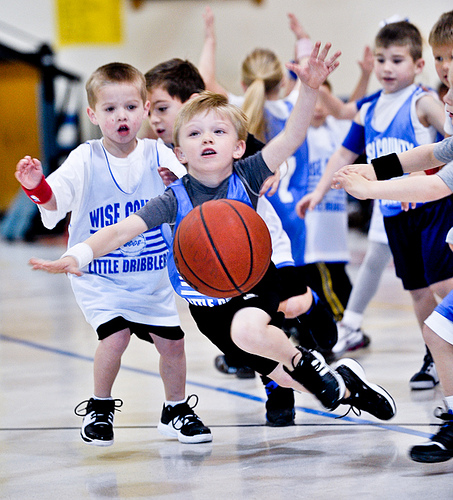By Amy Van Veen (The Cascade) – Email
Print Edition: October 24, 2012
I am not a parent.
I feel the need to preface this article with that small fact. Nothing bothers me more than non-parents attempting to give parenting advice because if they haven’t had to deal with hours of a screaming, teething child or known what it feels like to wipe a snotty nose with their bare hands and wipe them absent-mindedly on their jeans, they can’t really offer any suitable advice.
I am, however, an aunt.
Cue the eye-rolling of parents everywhere.
While I may have the luxury of handing nieces and nephews back to their parents when the poopy times get tough, I have been able to see, more objectively, the different ways of parenting and the different benefits (or non-benefits) of certain parenting techniques – namely, those who attempt to make their kids geniuses.
One thing I have noticed is the way groups of parents can turn into groups of braggers.
“My Billy can walk, and he’s only 10 months old.”
“Really? My Suzie can say full sentences – subject, verb and object.”
“Oh, is that right? Well, my Kevin is able to recite the alphabet – we got him on that before crawling.”
“Well, my Winston Edward the fourth is able to recite the prime ministers of Canada, name all the elements on the periodic table and do his times-tables.”
Parenting groups can become a one-upping game. No longer is it about who has the latest iPhone app, it is now whose baby can do the most. The problem with Winston Edward the fourth, though, is that his parents are spouting off what is most likely just a semblance of knowledge rather than anything concrete. If children are taught with flash cards, graphs, tables and charts, they may well be able to repeat everything they’re taught, but that doesn’t mean they’re learning.
Children are not adults. They can’t learn through visual presentations and, for any university student struggling through the current memorize-and-repeat learning style in some disciplines, neither can adults.
A recent study done by the University of Washington and the Seattle Children’s Hospital Research Institute, as reported in the LA Times, has found that educational children’s videos such as Baby Einstein may be doing more harm than good. Shocking that planting a child in front of a two-dimensional screen isn’t churning out actual baby Einsteins.
Recent studies are now pointing towards the indispensable one-on-one time kids have with their parents, as discussed by pediatrician Anatoly Belilovsky in Forbes. Children cannot learn from a screen the same way adults think they can – they need tactile learning. They need to play with someone. They need to practice speaking with someone. It needs to be a practical learning environment for them to even begin to see any educational benefits.
The ridiculousness of the educational toy and video industry is clearly evident when children are seen having way more fun with the cardboard box the toy came in rather than the toy, or the joy they get from opening and closing the DVD case than actually watching the DVD.
The biggest learning method I have witnessed, though, has been the parrot-like repetition of everything they see their parents do.
The mom swishes her coffee cup around to pick up the grounds at the bottom is followed by the daughter swishes her water around and spills it everywhere. The dad who talks about the inner-workings of his truck is going to have an echo as his son then turns to a friend and explains everything about the new tires on his GMC or the diesel it takes to drive.
Kids observe to a fault. If you swear, they swear. If you hit the cat, they’re going to hit the cat. But if you sit down and do a puzzle, they will sit down and do a puzzle with you. A kid can’t do a puzzle with an Elmo.
If a parent wants their child to get the blue ribbon for making their friends jealous, they can feel free to stress their kids out with flashcards, times-tables and educational videos, but the one who sits down and actually plays a game with their child will probably be the prouder parent when their child grows up with values, social skills and the ability to find balance between work and play.
And even though the American Academy of Pediatrics want parents everywhere to throw out their televisions, sometimes a mom just needs five minutes to drink her coffee and Winnie-the-Pooh isn’t hurting anyone—as long as Winnie-the-Pooh isn’t the only role model in that child’s life.


